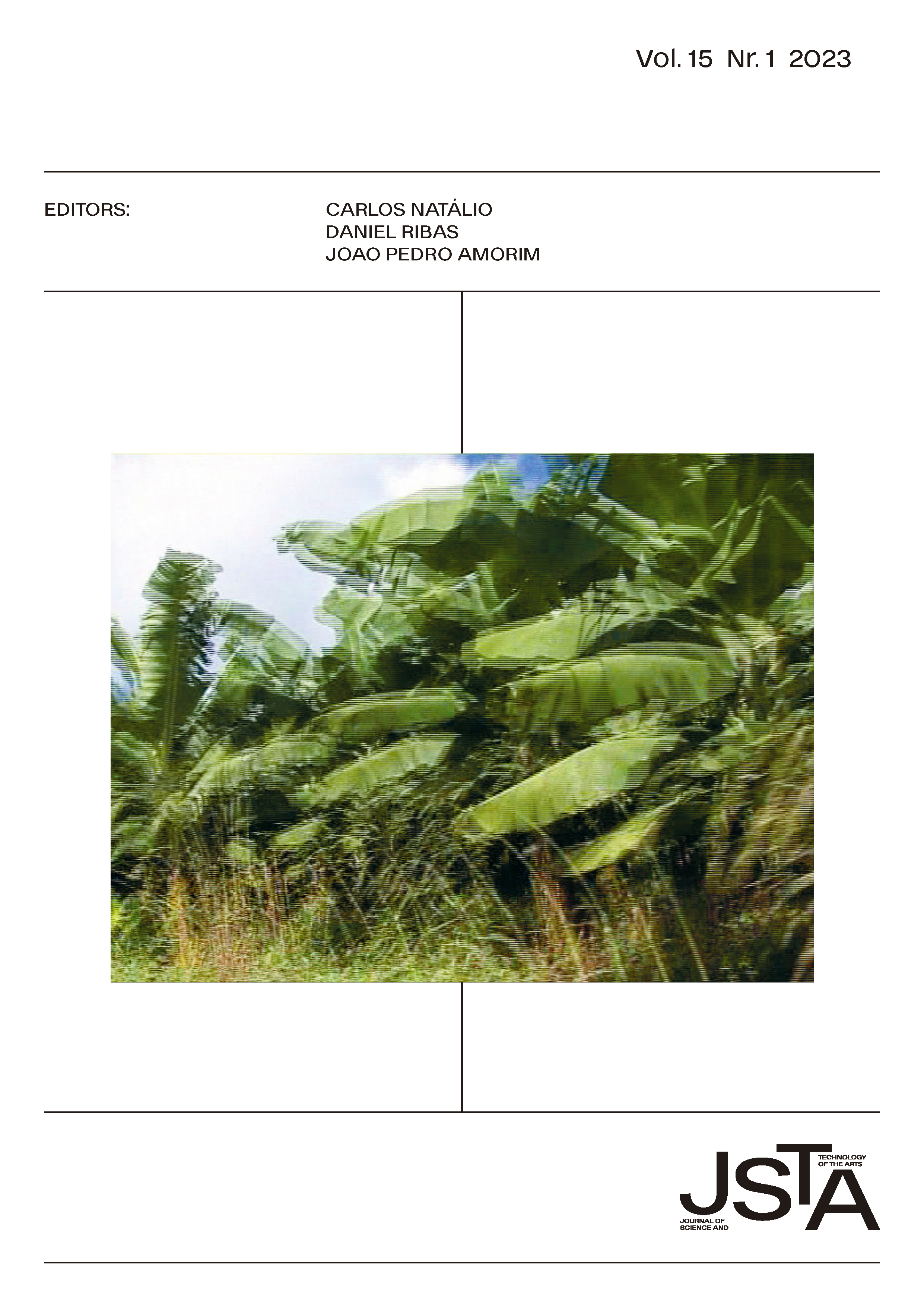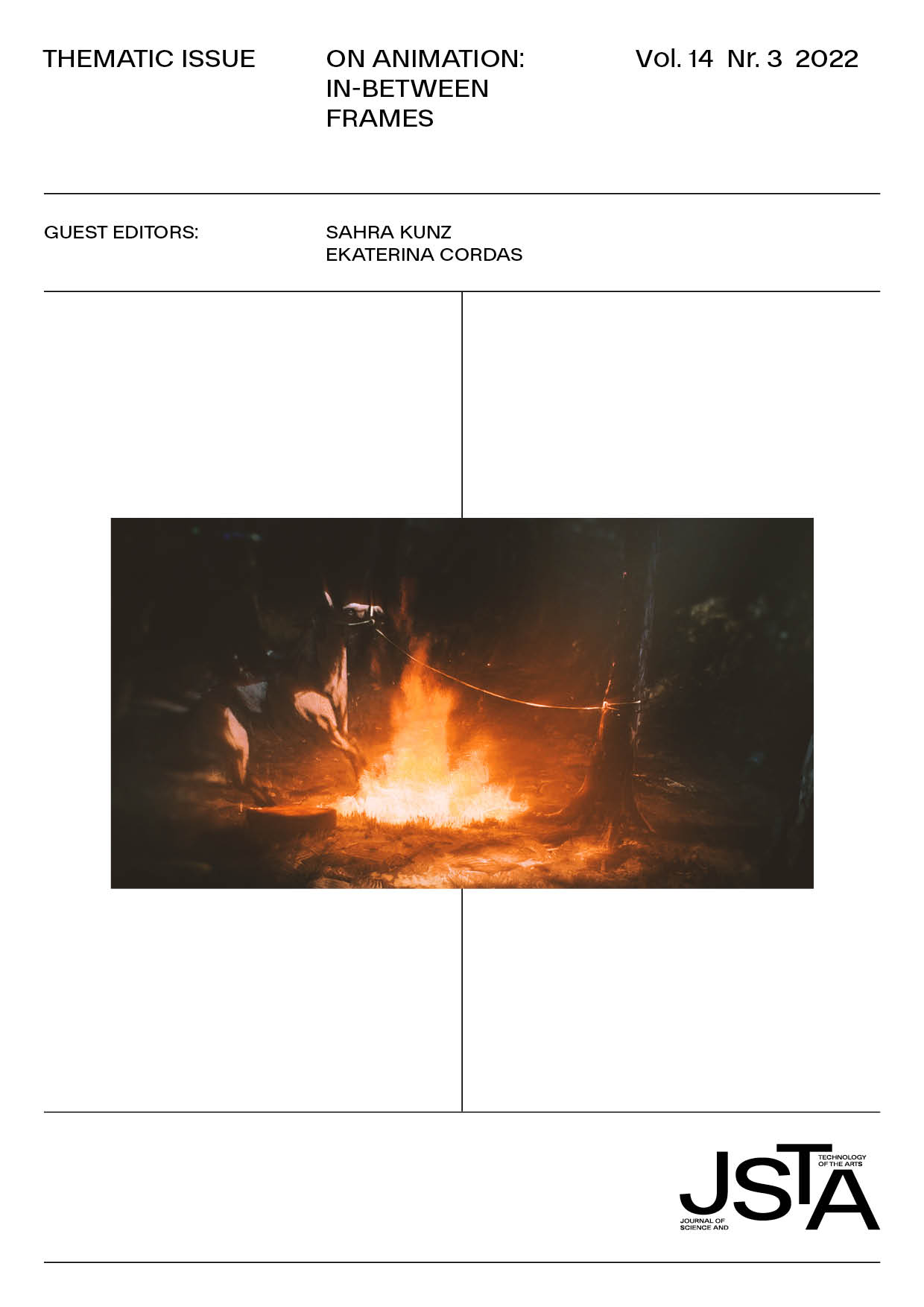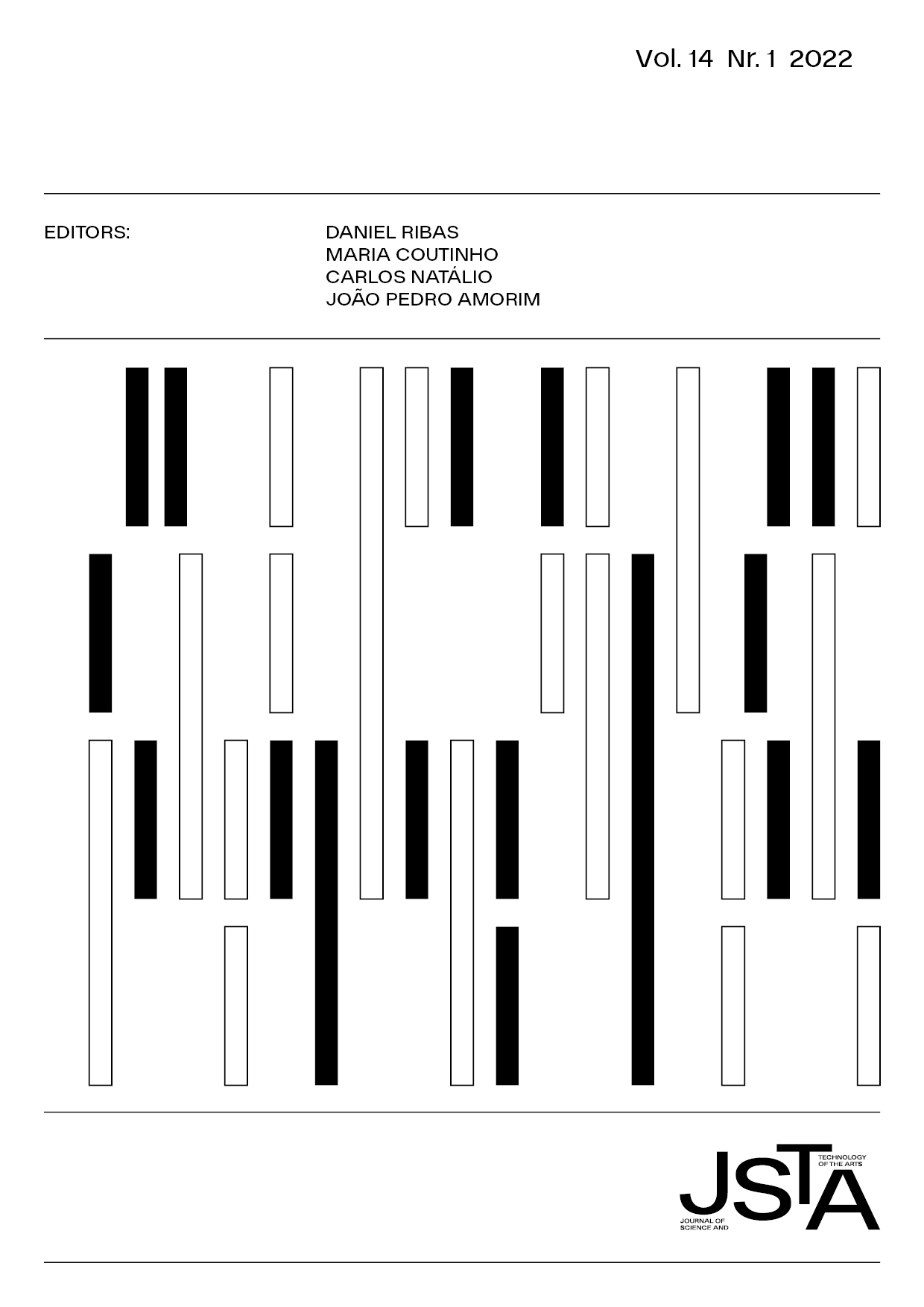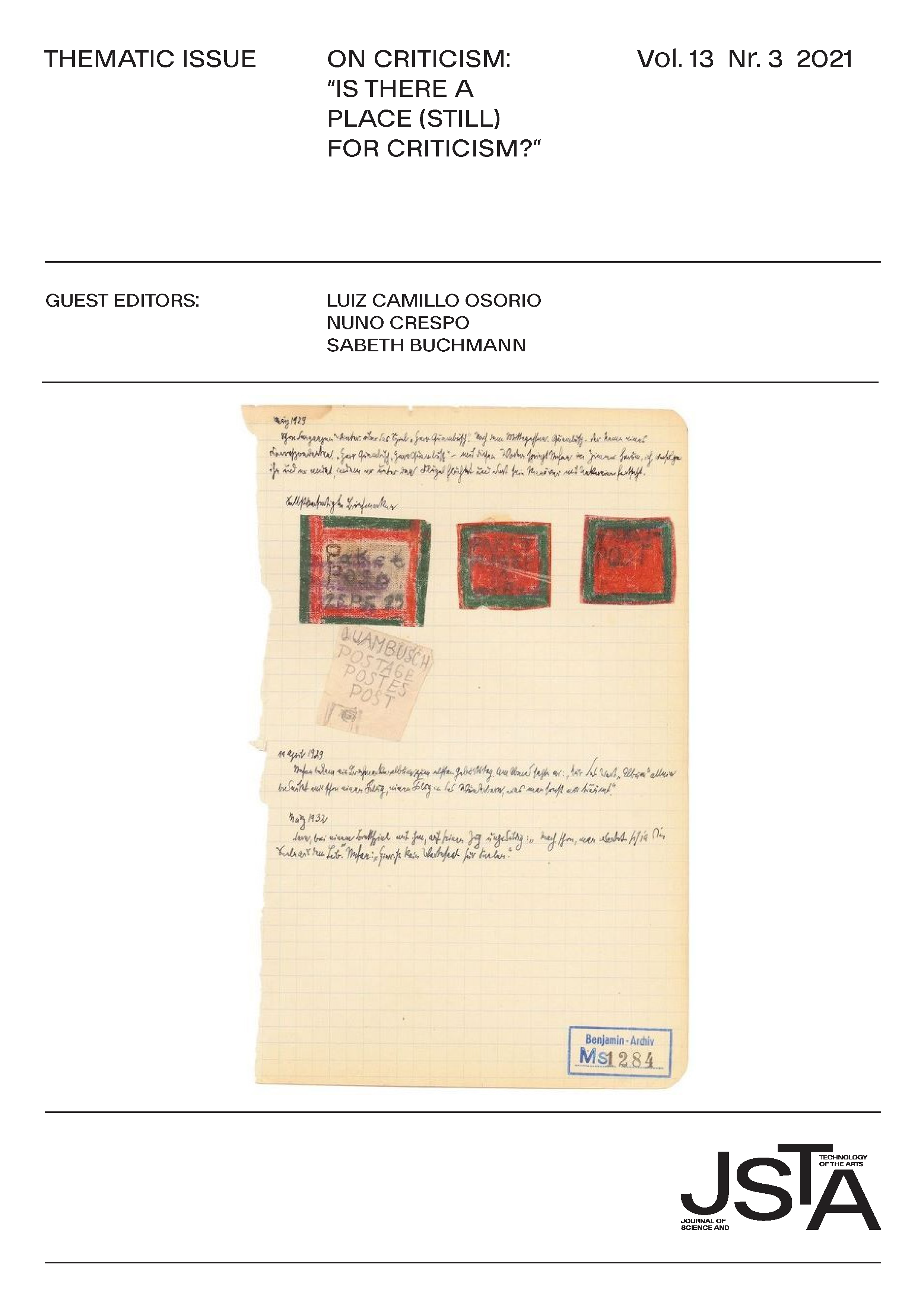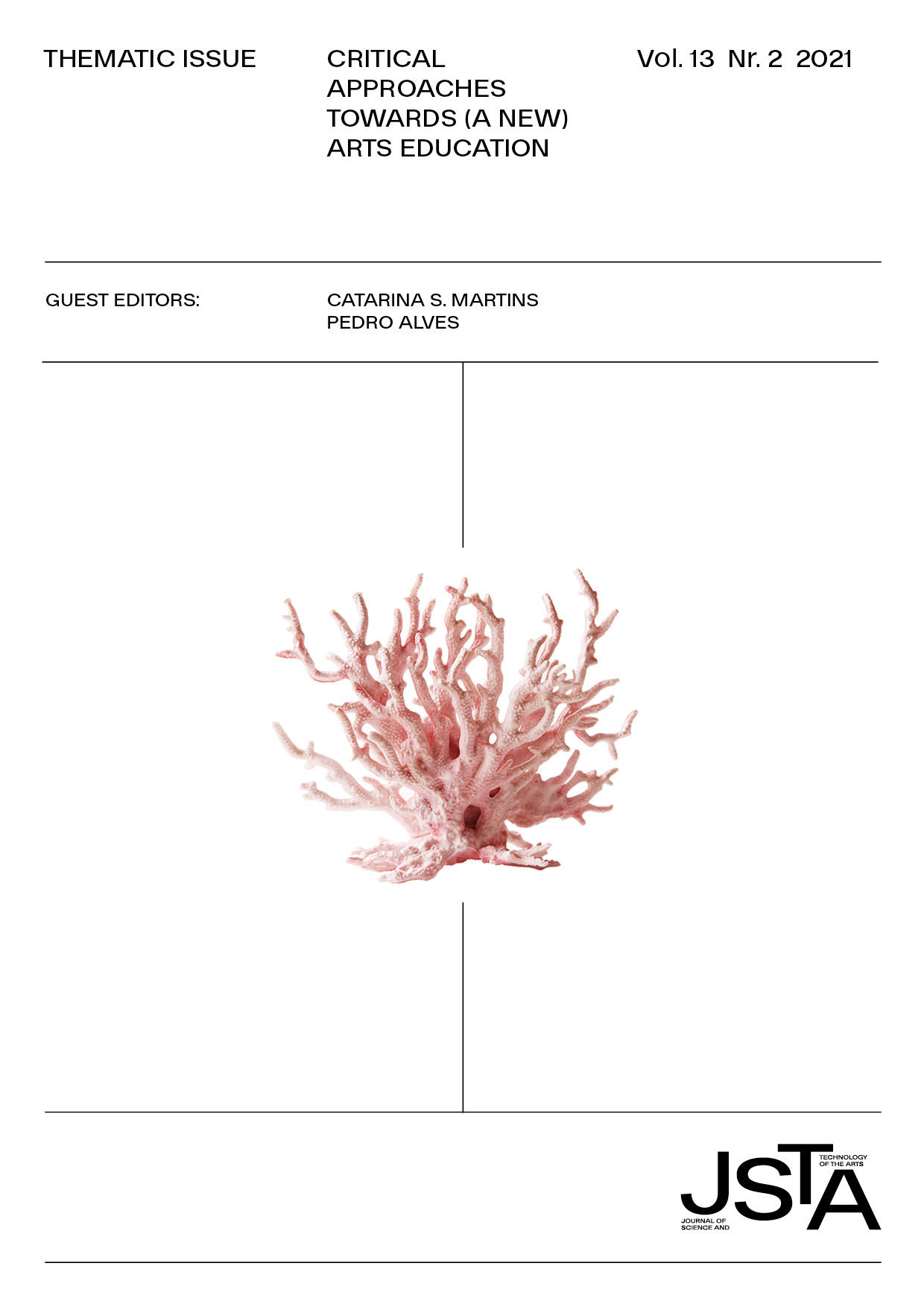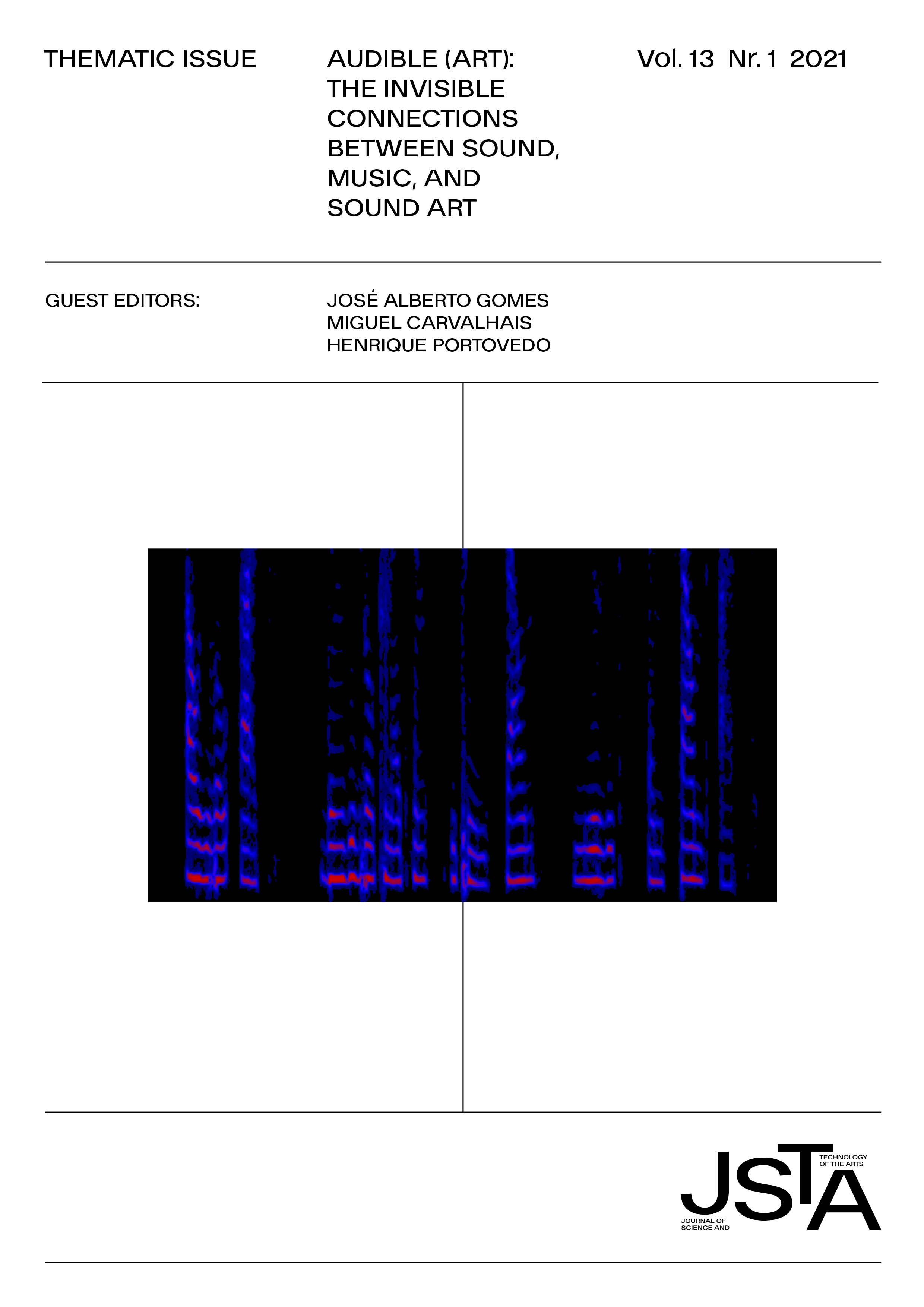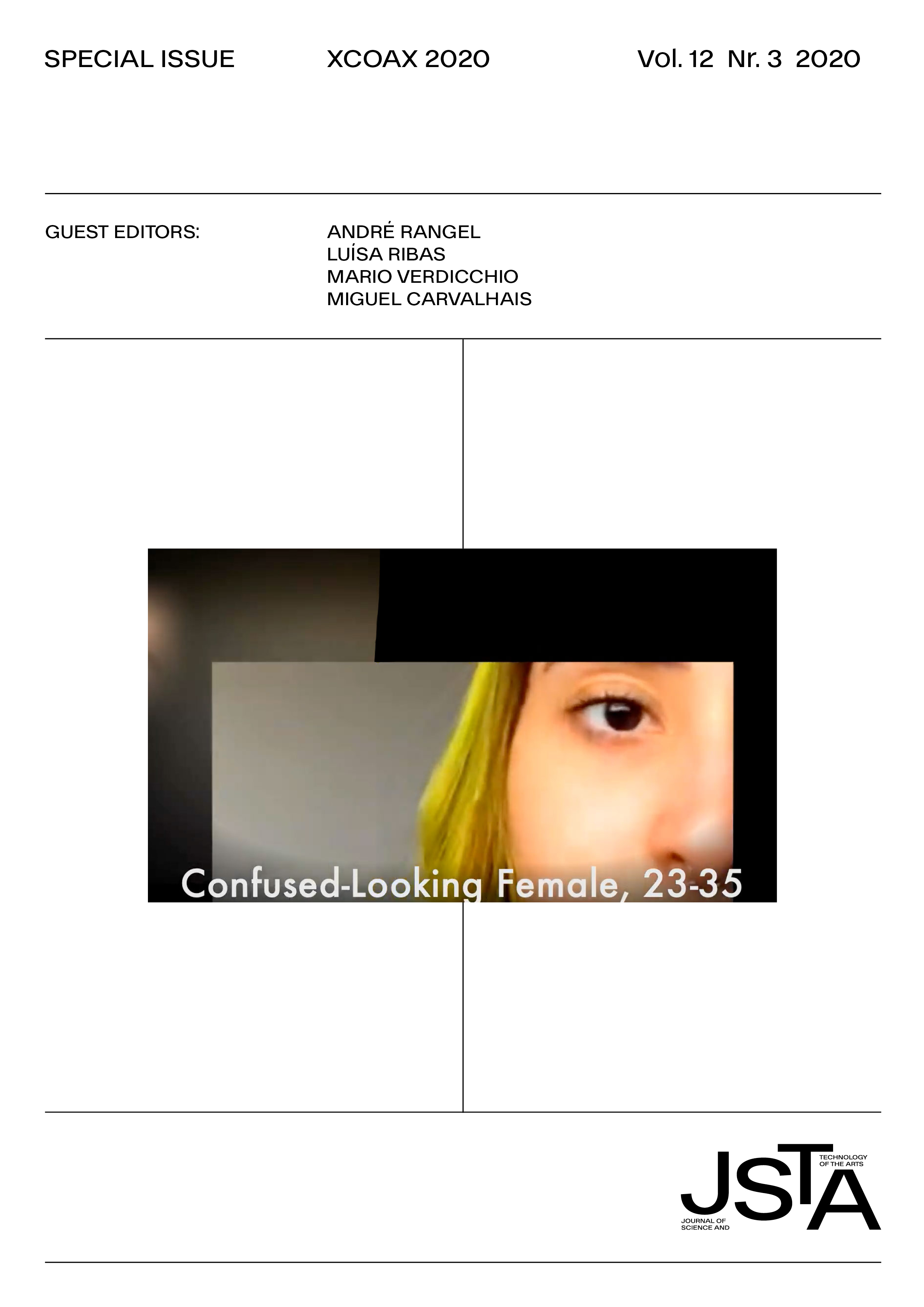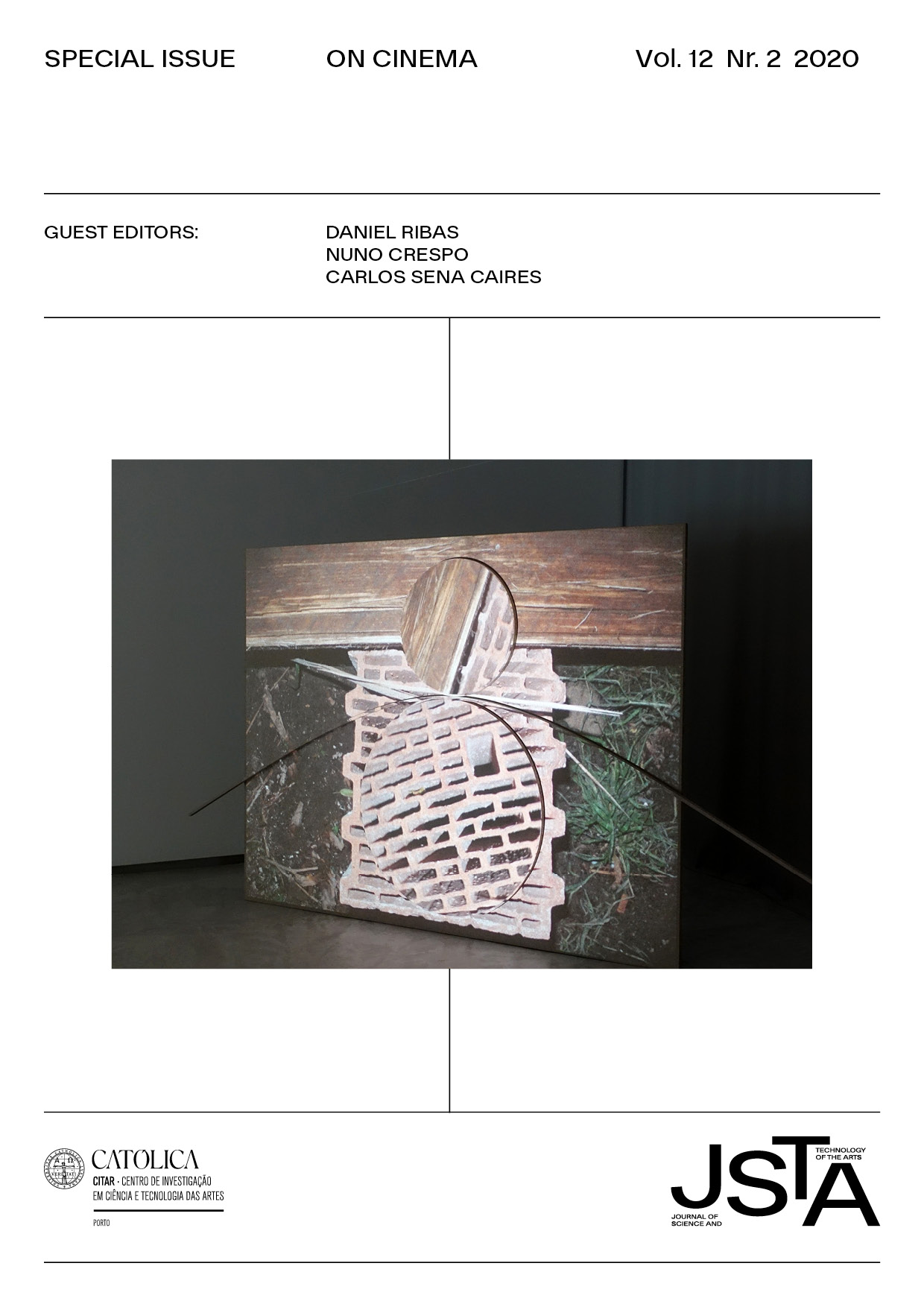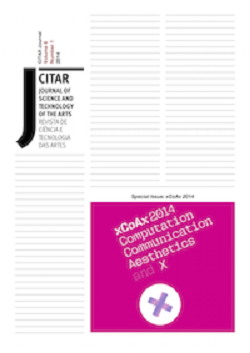Arts and Gaming, Convergent Feminism and Speculative Futures
Vol 15 No 2 (2023)
Guest Editors: Cristina Sá, Luciana Lima and Patrícia Gouveia
The materials presented in this dossier aim to open a discussion on Arts and Games, Convergent Feminism and Speculative Futures and invite the readers to explore the intricate relationships and coalitions between the arts, convergent feminism and digital and analog technologies, bringing together codes and algorithms, creativity and community involvement. This edition presents articles that are likely to pick the interest of a wide audience which questions the role of artificial intelligence in the arts and seeks examples of art-based research that takes advantage of transmedia ecologies and gaming to generate sustainable futures.
Vol 15 No 1 (2023)
This edition presents two articles in the area of new media studies, in particular interactive installation and virtual reality. The audiovisual essay section publishes two very different proposals. One about the notion of change and another about the comparison between two Yasujiro Ozu and João Botelho's films, through the idea of family. In this issue we are also proud to publish a conversation between Manthia Diawara and Ulrich Baer on the topics of art, culture, and identity.
On Animation: In-Between Frames
Vol 14 No 3 (2022)
Guest Editors: Sahra Kunz e Ekaterina Cordas.
The materials presented in this dossier aim to open a discussion on the present and future(s) of animation and invite the readers to look critically at the role of the medium in the contemporary world. By including articles from scholars and visual essays from artists, we would like to make a statement that animation studies should acknowledge both theory and practice.
Post-Photographic Truths: Poetics Vs Politics
Vol 14 No 2 (2022)
Guest Editors: Carlos Lobo e Paulo Catrica.
Devoted to contemporary photography artistic practices, under the motto “Post-Photographic Truths: poetics vs politics”, this issue publishes a dossier that aims to question and discuss the drifts of contemporary photographic practices in our post-truth era. Rooted in the historiography of the medium, the poetics and the political are hypothetical boundaries that prevail in current photographic artistic practices.
Vol 14 No 1 (2022)
The first issue of 2022 opens the potentiality of this journal to become interdisciplinary and to research within the cross fields of art and technology (although we always know that there is no art research without the technological means to produce it). Nevertheless, we want to highlight how this issue comes from the openness of the field, including, in the Articles sections, three texts that try to understand different domains of this relation, namely: virtual reality, glitch art, and artificial intelligence.
On Criticism: “Is there a place (still) for criticism?”
Vol 13 No 3 (2021)
Guest editors: Luiz Camillo Osorio, Nuno Crespo and Sabeth Buchmann
This issue includes a thematic dossier that deepens the concerns "on criticism". The texts presented have two ambitions. On the one hand, they try to retake the problem of art criticism in a digital age that significantly transformed the means of exhibition and experimentation of works of art. Together they are an introduction to the task of criticism today, taking into account its genealogy in German theoretical romanticism and its new repertoires in post-colonial theory and infra-structural critique. On the other hand, they aim in recovering the discussion of criticism and the need for its inclusion in contemporary art discussions.
Critical Approaches Towards (A New) Arts Education
Vol 13 No 2 (2021)
Guest editors: Catarina S. Martins and Pedro Alves
Neoliberalism tends to put economic utility and usage as principles that capture art under the jargons of creativity, cultural industries, or flexibility. There is still an idea that arts are powerful transformative agents, but arts education still strives to claim its specificity and equal relevance comparing to other kinds of knowledge. Moreover, the very concept and status that arts and education built from European perspectives and aligned with colonial practices and identity constructions must be revised. This JSTA issue aims to question how to critically build a place and status for arts education which does not reproduce the hegemonic power relations it seeks to criticize, and which stimulates change instead of accommodation and homogenization.
Audible (Art): The Invisible Connections Between Sound, Music, and Sound Art
Vol 13 No 1 (2021)
Guest editors: José Alberto Gomes, Miguel Carvalhais, and Henrique Portovedo
Sound today represents much more than a musical element or even an acoustic and physical phenomenon. Since the 1970s, the singularity impulse of the moment in music has shaped new paths and disciplines with its new grammars and wills. Art through sound, as a practice, takes advantage, describes, analyzes, executes and interrogates the condition of the sound and the processes by which it operates. Thus, any remaining musical argument is negated by a predominant extravagance of unintentionality, multiplicity, silence or noise. At the same time, the role of technology in this evolution is undeniable. The development and use of computational tools and media have become a constant and the majority of the art through sound is affected by it, in a symbiosis with technology that radically transforms the landscape for the practice of the arts.This special issue of the JSTA, intend to address sound as a bundle of practices that can either arise from, lead to, or use sound as a tool of world building.
xCoAx 2020
Vol 12 No 3 (2020)
A key factor in global efforts, like the response to the global pandemic, is technology in terms of data sharing over digital networks, which allows for rapid dissemination of knowledge. However, the question on how digital technologies are intertwined with the arts and culture has not yet found exhaustive answers. Current circumstances have put all creative endeavours to the test and have created room for further reflection on technology as an opportunity on the one side (in terms of computation, speed, connectivity) and as a limitation on the other (in terms of quality, practice, sociality). The articles in this issue are contributions to this discussion.
On Cinema
Vol 12 No 2 (2020)
Guest editors: Daniel Ribas, Nuno Crespo, and Carlos Sena Caires
In the past decades, the field of cinema has undergone several transformations. The digital turn increasingly called for new forms of production, distribution, and exhibition, which imply different ways of thinking, doing, and experimenting cinema. These new forms also reduced the gap between cinema to other so-called visual arts. If cinema and visual arts were already in the process of merging, the last years forced the naturalization of thinking in similar theoretical grounds. This special issue aims to be a forum for the discussion of new practices of researching cinema, and the changes in cinema’s forms of experience and production.
Consciousness Reframed
Vol 12 No 1 (2020)
Guest Editors: Cristina Sá, André Baltazar and Rui Torres.
This special issue of JSTA gathers together six of the best papers presented at the 21st International Consciousness Reframed Conference, organized by CITAR - Research Center for Science and Technology of the Arts in collaboration with the Planetary Collegium.
xCoAx 2019
Vol 11 No 2 (2019)
This special issue of the Journal of Arts Science and Technology is dedicated to the 2019 edition of xCoAx, the International Conference on Computation, Communication, Aesthetics, and X. Our selection includes scholars who have been studying the automatization of the arts and culture, and who can help us navigate the sea of discourses in the media and in the literature on the impact of AI in a more knowledgeable way.
Marginalized Narratives
Vol 11 No 1 (2019)
This issue of Journal of Arts Science and Technology is especially devoted to what we designated as Marginalized Narratives. It is a special issue that collects studies published upon the 5th Colloquium on Narrative, Medium and Cognition, held at the University of Algarve in November 2018, and which was focused on that topic.
xCoAx 2018
Vol 10 No 3 (2018)
Guest editors: Luísa Ribas (Faculty of Fine Arts of the University of Lisbon), André Rangel (CITAR / Universidade Católica Portuguesa), Mario Verdicchio (School of Media, Culture and Society, University of the West of Scotland), Miguel Carvalhais (INESC TEC & Faculty of Fine Arts of the University of Porto)
Special issue with a selected set of extended papers from the xCoAx 2018 conference.
eNTERFACE 2017
Vol 10 No 2 (2018)
Guest editors: Luís Teixeira (CITAR, Universidade Católica Portuguesa) & André Perrotta (CITAR, Universidade Católica Portuguesa)
Special issue with a selected set of papers from the eNTERFACE 2017 workshop.
Vol 10 No 1 (2018)
In this issue of Journal of Arts Science and Technology, Rita Xavier Monteiro and Helena Barranha discuss affectivity in the context of Post-Internet art. António Bandeira Araújo teaches you how to manually draw equirectangular virtual reality panoramas using a ruler, compass, and protractor. Mei-Kei Lai reviews how scent has been treated as an aesthetic medium in art and discusses opportunities for the use of olfactory displays. Pedro Pinto Neves, Leonel Morgado, and Nelson Zagalo propose a new model for agency in videogames using the concept of bio-costs contract. Finally, Kendra Chilson, and Máté Szabó provide us with a review of the exhibition “Thinking Machines: Art and Design in the Computer Age, 1959-1989”.
xCoAx 2017
Vol 9 No 3 (2017)
Guest editors: Luísa Ribas, (Faculty of Fine Arts of the University of Lisbon); André Rangel, (CITAR, Universidade Católica Portuguesa); Mario Verdicchio (School of Media, Culture and Society, University of the West of Scotland); Miguel Carvalhais (INESC TEC, Faculty of Fine Arts of the University of Porto).
Special issue with a selected set of extended papers from the xCoAx 2017 conference.
Narrative and Audiovisual Creation
Vol 9 No 2 (2017)
Guest editors: Maria Guilhermina Castro; Jorge Palinhos; Daniel Ribas; Carlos Sena Caires.



